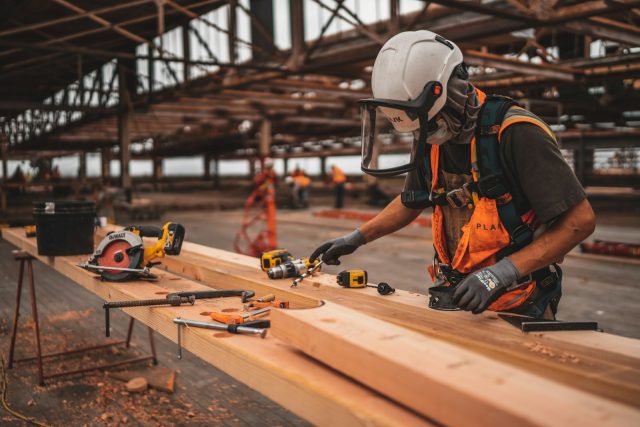
When most people think about career success, they envision enrolling in a college program, taking on student loans, completing their studies, and finding a job.
However, in more recent years, some are questioning whether the path to a rewarding and fulfilling career necessarily involves drowning in debt. Even if school and board are covered via scholarships or deep-pocketed parents, there’s also the time aspect.
Spending three or four years in school to pursue an undergraduate degree might seem like torture if you’d rather get into the workforce sooner.
The good news is that jobs in the skilled trades, such as electricians, plumbers, mechanics, welders, and carpenters, are one way to create financial security, gain flexibility, and enjoy personal satisfaction.
If you’re thinking about your next career step, here are three signs that a trade job may be in your future.
1. You Like to Work with Your Hands
One obvious sign you’re suited for the trades is if you become claustrophobic in a typical office setting. You might not like the idea of spending all day sitting at a desk. If an office job has you feeling like you’re locked away in a cubicle and tethered to a chair, you might find yourself daydreaming about a job that gives you more freedom.
Depending on your interests, a trade job that gets you out of the office might be the answer. Trade jobs are hands-on, since they can involve building things, repairing machinery, installing systems, and more. So, if you like action, diversity, and hands-on activity, a trade career may be far more rewarding than a job staring at a laptop screen.
2. You Want a Career with Strong Job Security
A second reason people turn to the trades is job stability. Current labor market statistics indicate skilled trade workers are in short supply, despite the high demand.
Unlike some industries open to outsourcing or automation, most trades require employees to work on-site. You can’t outsource plumbing repairs or electrical installations to another country. Similarly, while technology may change how tradespeople work, it’ll never fully replace them.
As long as people need homes, vehicles, roads, and reliable utilities, skilled trade workers will remain essential. If you’re seeking a career path that’s abundant with opportunities, the trades are one of the most secure options.
3. You’d Like to Earn Without Years of Student Debt
For many, the most significant barrier to earning a traditional degree is the expense. The cost of attending college has gone up astronomically in the past few decades, and the reward upon completing the degree is often a debt albatross. Apprentice programs and trade schools, however, are typically much less expensive and shorter in duration.
The majority of trade schools last between one and two years, and apprenticeships offer the advantage of gaining a salary while you learn. If you take an online forklift operator certification, you can complete the credential within a single day.
Not everyone is meant for the same career path, and that’s a good thing if you want options.
Skilled trades are vital to the economy. So, if you enjoy using your hands, value job security, and don’t want to take on huge student loans, the trades may be in your future.
Career transition in the trades isn’t about finding a job—it’s about building a career that offers security, growth, and fulfillment.
With companies across the country suffering from a lack of qualified talent, now is a good time to consider whether or not a trade job is for you. If the three points explored above resonate with you, it might be time to pursue a career path less traveled.